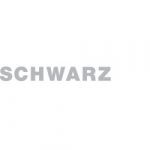Quantum Computing Competition Intensifies

(WRAL.TechWire) June quantum computing market activities illustrate the growing public sector interest in quantum as both a source of high-paying jobs and a technology vital to a company’s strategic sovereign interests.
Funding for scientific discovery has been that, once hardened, could be retooled for commercial use cases. Quantum systems are no different in that regard.
Federated Quantum System (FQS) announced during the G-7 summit that the U.S., U.K., Japan, Canada, Italy, Belgium and Austria will collaborate on a on a satellite-based quantum technology encryption network based on assets being developed by British startup Arqit. With ransomware attacks bringing cybersecurity to the forefront of the news, this multinational encryption initiative for military communications between allied nations represents encouraging signs for international cooperation that can potentially produce the funding necessary to advance quantum to a point where it is commercially advantageous.
Germany formally announced its quantum data center facility, to be located near Stuttgart and managed by prominent applied research organization Fraunhofer-Gesellschaft. The event underscores the strategic importance many nation states place on ensuring a center of gravity within the quantum world within their sovereign borders.
The EU loosened restrictions it had imposed on non-EU nations participating in its quantum research initiatives. Launched in February under the legislative banner Horizon Europe, which calls for funding of 95.5 billion euros in total, the initiative calls for curiosity-driven proposals from the European Research Council.
Honeywell and Cambridge Quantum Computing (CQC) announced a spin-merger combining Honeywell’s quantum assets with those of CQC. An early investor in the ion trap hardware stack, Honeywell will retain a majority stake in the combined entity, which will include CQC’s software stack as well. CQC will remain system-agnostic. Honeywell claims the impetus for creating a stand-alone quantum entity was to facilitate investment from various capital sources that may have been reticent to invest in the operation when it was a wholly owned Honeywell subsidiary.
Rigetti Computing held an early lead in full-stack quantum development but has struggled lately to keep pace with the investment funding necessary to compete with heavily capitalized firms such as IBM, Google and Microsoft. In June Rigetti announced it had developed a scalable manufacturing design process for quantum chips manufacturing in its fabrication plant in California



















